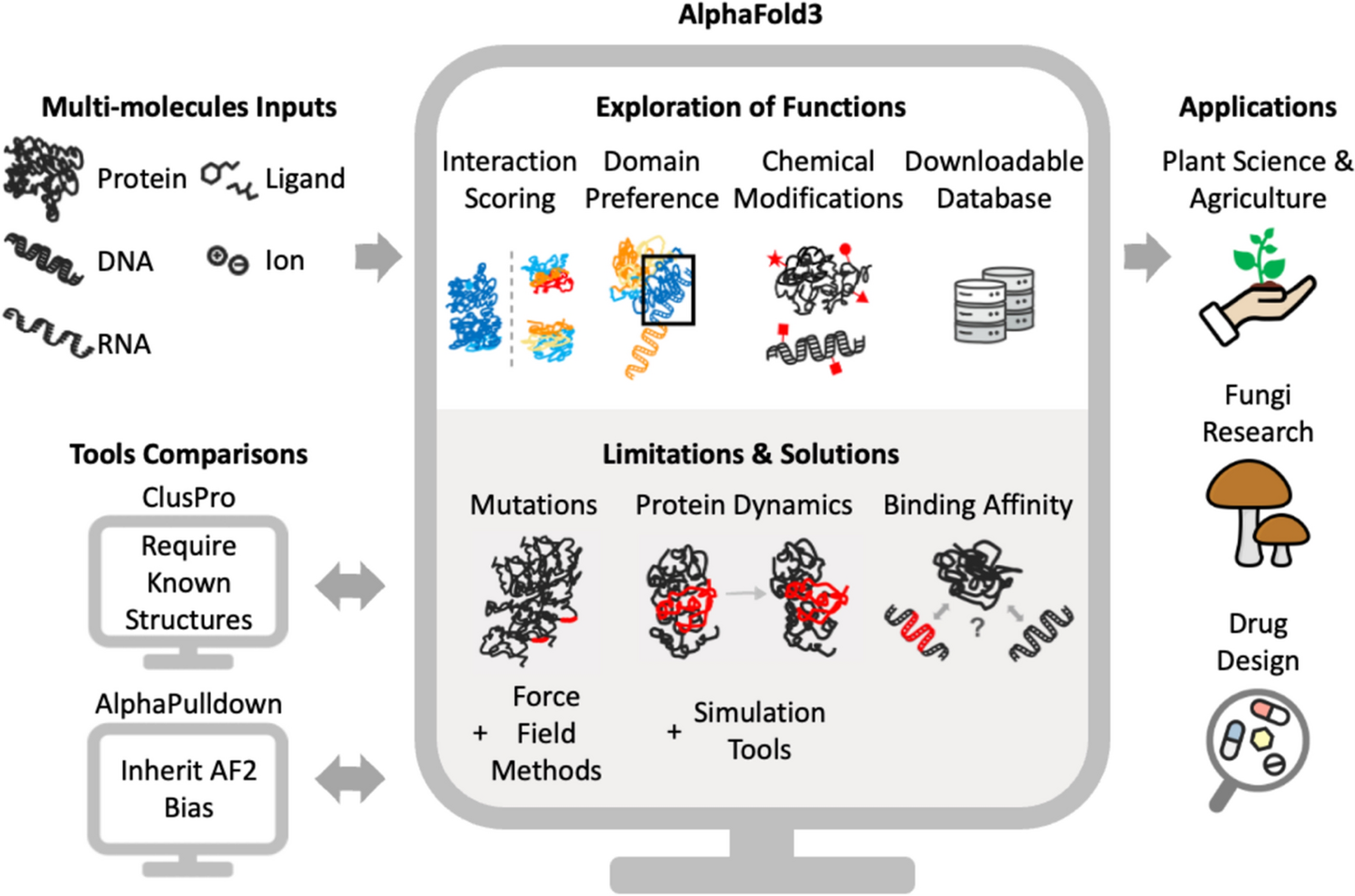[Pao-Yang Chen] Analysing protein complexes in plant science: insights and limitation with AlphaFold 3
POST:
Overview of analyzing protein complexes using AlphaFold 3 (AF3) in plant sciences. The left panel shows multi-biomolecular inputs and a comparison of ClusPro and AlphaPulldown for complex prediction. The central panels highlight AF3’s functional capabilities (top), including identification of true vs. weak interactions, domain-level preferences, structural changes due to chemical modifications, and access to downloadable databases; and key limitations (bottom), such as challenges in predicting mutation effects, protein dynamics, and protein–DNA binding affinities, along with potential solutions. The right panel illustrates potential applications of AF3 in plant biology.
AlphaFold 3 (AF3), an artificial intelligence (AI)-based software for protein complex structure prediction, represents a significant advancement in structural biology. Its flexibility and enhanced scalability have unlocked new applications in various fields, specifically in plant science, including improving crop resilience and predicting the structures of plant-specific proteins involved in stress responses, signalling pathways, and immune responses. Comparisons with existing tools, such as ClusPro and AlphaPulldown, highlight AF3’s unique strengths in sequence-based interaction predictions and its greater adaptability to various biomolecular structures. However, limitations persist, including challenges in modelling large complexes, protein dynamics, and structures from underrepresented plant proteins with limited evolutionary data. Additionally, AF3 encounters difficulties in predicting mutation effects on protein interactions and DNA binding, which can be improved with molecular dynamics and experimental validation. This review presents an overview of AF3’s advancements, using examples in plant and fungal research, and comparisons with existing tools. It also discusses current limitations and offers perspectives on integrating molecular dynamics and experimental validation to enhance its capabilities.
This article was published in Botanical Studies with funding from Academia Sinica.